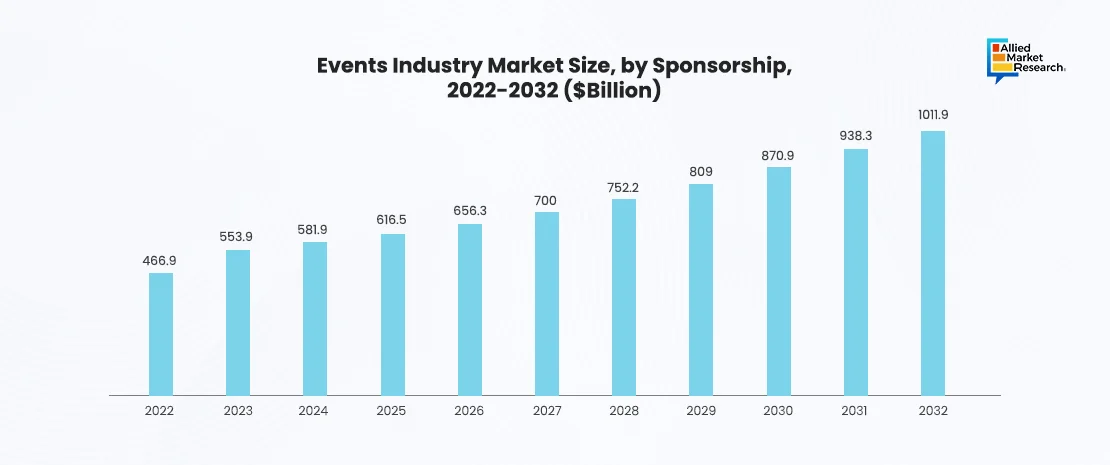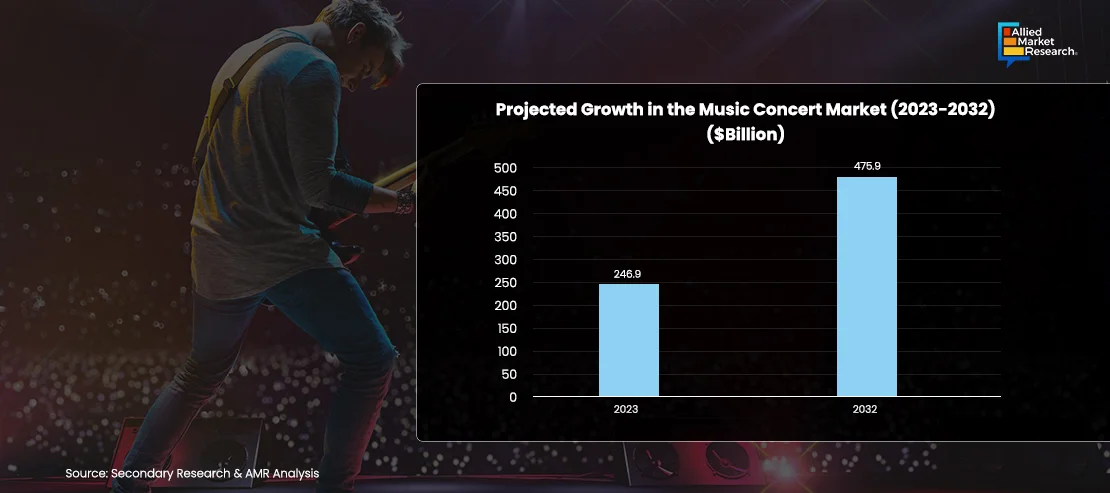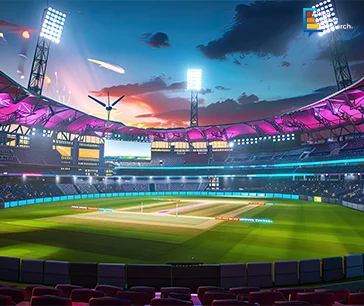Table Of Contents
- Elevating the Events Industry: The Influence of Luxury Events
- Innovations That Are Shaping the Future of the Modern Events Industry
- Case Study: ICC Cricket World Cup 2023- Delivering a Premier Global Sporting Spectacle
- Introduction
- Objectives and Implementation
- Challenges
- Outcomes
- Future prospects
- Strategic insights
- Closing section

Roshan Deshmukh

Koyel Ghosh
The Transformative Power and Future of the Events Industry

The event industry consists of various gatherings, including conferences, festivals, trade shows, and corporate events, designed to unite people for multiple purposes such as networking, entertainment, education, and celebration. The potential of the events industry lies in its ability to drive economic growth, foster cultural exchange, and facilitate community engagement. Events generate revenue for organizers and local businesses, create employment opportunities, and promote tourism, thus driving the extensive market growth in recent years. This has caused the events industry to grow from $994.7 billion in 2022 to $2,046.7 billion by 2032 at a CAGR of over 6.4%.
Events serve as multifaceted platforms for sponsors to promote their brands, engage customers, and foster business growth. For instance, at the Super Bowl, sponsors such as Pepsi gain visibility among over 100 million viewers, embedding themselves in the event's cultural significance through halftime show sponsorship. Similarly, BMW's sponsorship at the TED Conference allows them to reach decision-makers aligned with their innovative brand identity. Moreover, events such as CES provide invaluable direct feedback to sponsors such as Samsung, which allows attendees to interact with new products firsthand.
Organizers carefully customize various events for specific niches. However, the music concert segment is expected to grow at a rapid rate during the forecast period from 2023 to 2032, with a CAGR of 7.6%. Platforms such as Facebook, Instagram, and Twitter serve as powerful tools for promoting music concerts, engaging with fans, and building excitement around events. Organizers widely use social media to announce lineups, share behind-the-scenes content, run ticket giveaways, and facilitate interactions between artists and their audience. Moreover, social media enables concert goers to share their experiences in real-time, expanding the reach of events and creating a sense of fear of missing out (FOMO) among those who didn't attend, further fueling interest and demand for music concerts.

Elevating the Events Industry: The Influence of Luxury Events
The events industry has grown significantly due to luxury events catering to the post-pandemic demand for extraordinary, in-person experiences. After years of digital interactions, consumers, particularly high-net-worth individuals, are seeking exclusive, immersive gatherings that offer more than just attendance, as they want participation, emotion, and lasting memories.

Events of luxury, like the Cannes Film Festival, stand as prominent illustrations of this trend. Beyond movie premieres, it is a playground for luxury brands. In 2023, Chopard's exclusive gala, attended by stars such as Natalie Portman, offered a blend of high jewelry, gourmet dining, and special performances. Such events provide unparalleled networking in affluent settings, justifying their high price tags. They also generate extensive social media coverage, as influencers share their experiences, strengthening brand exposure.

In addition, businesses are increasingly using corporate luxury events to build high-level connections, motivate top talent, and enhance brand name. They go beyond mere extravagance, which provides exclusive environments where business personalities engage in substantive discussions away from the public eye. For instance, Allen & Company Sun Valley Conference, known as the "summer camp for billionaires," and Salesforce's annual leadership retreat in Hawaii, these events combine high-end leisure activities with intensive strategy sessions, facilitating transformative deals and inspiring ambitious thinking about the company's future. These events illustrate that luxury within the corporate realm serves a purpose beyond mere indulgence, enhancing the environment to foster an atmosphere conducive to groundbreaking ideas and strategic alliances. Consequently, they play a pivotal role in propelling business growth and fostering innovation.
The shift toward high-value, experiential events has driven the entire industry. These luxury events have set new standards in design, technology, and guest experience, influencing events across all sectors and driving industry growth and innovation.

Innovations That Are Shaping the Future of the Modern Events Industry
The modern events industry is being shaped by innovative developments that promise to redefine its future. From virtual reality experiences to AI-powered event planning tools, these advancements are revolutionizing how events are conceived, organized, and experienced.
Hybrid and virtual events: The COVID-19 pandemic accelerated the acceptance of hybrid and virtual events within the industry, enabling organizers to reach a wider audience while prioritizing safety measures. Virtual events take recourse to digital platforms, live streaming, and interactive tools to deliver content and facilitate networking. Hybrid events, however, combine in-person and virtual elements, providing flexibility and inclusivity. For instance, in February 2023, the Global Entrepreneurship Summit, a prestigious event hosted by the U.S., adopted a hybrid format, allowing attendees from around the world to participate virtually while also hosting in-person gatherings in select locations.
Experiential events: In the last few years, there’s been a significant growth in demand for events that offer immersive and experiential elements, engaging attendees through multisensory experiences, interactive installations, and unique activities. Event organizers are increasingly focusing on creating memorable and shareable moments for their attendees during the live events. In April 2024, Coachella, the iconic music festival, has become a prime example of experiential events, which featured large-scale art installations, interactive exhibits, and curated brand activations that complement the musical performances.
Sustainability and eco-friendly practices: With increasing environmental concerns, the events industry has adopted sustainable and eco-friendly practices. Organizers are implementing initiatives such as waste reduction, energy-efficient solutions, locally sourced food and materials, and carbon offsetting programs. United Nations Climate Change Conference (COP27) The United Nations Climate Change Conference in Sharm El-Sheikh, Egypt, introduced several sustainability initiatives, such as prohibiting single-use plastics, offering eco-friendly transportation choices, and compensating for carbon emissions via reforestation efforts, in June 2022.
Data-driven event planning: The use of data analytics and attendee tracking technologies has become increasingly prevalent in event planning. Organizers can now gather valuable insights into attendee behavior, preferences, and engagement levels, enabling them to make data-driven decisions and personalize experiences. For example, major trade shows and conferences, such as the Consumer Electronics Show (CES), utilize advanced data analytics platforms to analyze attendee flow, session popularity, and exhibitor engagement that allows organizers to optimize future events and deliver more tailored experiences.
Innovative event technologies: The events industry is continuously embracing innovative technologies to enhance attendee experiences and streamline event operations. Some instances include the use of virtual reality and augmented reality for immersive showcases, facial recognition for seamless check-ins, and event management software for efficient planning and execution. In 2023, the Geneva International Motor Show utilized AR and VR technologies to enable attendees to experience and interact with concept cars in innovative ways, blending the physical and digital areas.
Emphasis on health and well-being: With a growing focus on physical and mental well-being, event organizers are incorporating health-conscious elements into their events. This includes offering healthy food options, providing wellness activities such as yoga or meditation sessions, and designing event spaces with attendee comfort and accessibility in mind. The 2023 World Economic Forum in Davos, Switzerland, introduced a dedicated wellness program for attendees, which featured mindfulness sessions, healthy cuisine options, and quiet zones for relaxation and rejuvenation.
These developments show continuous evolution in the landscape to meet the changing needs and expectations of attendees, stakeholders, and society. As the industry continues to adapt and innovate, the sector is expected to experience even more exciting and transformative experiences in the coming years.
Case Study: ICC Cricket World Cup 2023- Delivering a Premier Global Sporting Spectacle
Introduction
The ICC Cricket World Cup is the top international competition in One Day International (ODI) cricket, run by the International Cricket Council (ICC). This sport event happens every four years and features the best cricket teams from around the world. It is known for exciting matches and showcasing the best cricket talent. The World Cup also has a big economic impact, as it attracts millions of fans worldwide and offers many business opportunities in broadcasting, sponsorship, and selling cricket-related products. In 2023, India hosted the 14th edition of this marquee tournament, attracting millions of passionate cricket fans from around the world.
Objectives and Implementation
The primary objectives of the 2023 Cricket World Cup were to provide a world-class cricketing experience, promote the sport globally, and encourage international company and sportsmanship. The International Cricket Council (ICC) and the Board of Control for Cricket in India (BCCI) collaborated extensively to plan and execute the sport event, ensuring seamless logistics, state-of-the-art facilities, and robust security measures.
Challenges
Hosting such a huge global event presented several challenges, including ensuring the safety and security of players and spectators, managing logistical complexities across multiple venues, and addressing potential weather disruptions. In addition, the organizers had to manage the challenges of meeting the diverse cultural and linguistic needs of the international audience.
Outcomes
The 2023 Cricket World Cup was a definite success, captivating audiences worldwide with its high-quality cricket, stimulating atmosphere, and seamless organization. The tournament showcased India's ability in hosting major sporting events and left a legacy in terms of infrastructure development, tourism promotion, and the growth of cricket as a global sport.
Future prospects
Building on the success of the 2023 edition, the ICC and host nations for future Cricket World Cups can use the lessons and best practices gained to improve the event even more. Incorporating emerging technologies like virtual and augmented reality, and exploring sustainable event management practices are key areas of focus.
Strategic insights
The sport event aims to engage a global audience, promoting cricket across diverse cultures and regions, thereby expanding the fan base and fostering international unity through sport. Additionally, the World Cup generates significant economic opportunities through broadcasting rights, sponsorships, merchandise, and tourism, greatly benefiting both the host nation's economy and the financial expansion of cricket. Furthermore, the event serves as a powerful platform for promoting the ICC and its member nations, enhancing their brand visibility worldwide.
Closing section
To wind up, embracing emerging technologies and innovative approaches, such as virtual and hybrid events, holds immense potential for unlocking new avenues of engagement and revenue generation. To succeed, businesses need thorough planning, flawless execution, and a good grasp of what consumers want. Collaborating with event and tech providers, as well as regulatory bodies, is key to exploring challenges and grabbing opportunities ahead.
Allied Market Research provides an in-depth analysis of the booming events industry, focusing on technological advancements, market dynamics, and regulatory frameworks. Our detailed reports equip stakeholders with essential insights into the pivotal role of these events in enhancing global reach, security, and environmental sustainability. Businesses can utilize these insights to understand new opportunities, drive innovations, and foster smarter, sustainable financial solutions that improve the market's efficiency. For a comprehensive examination of growth drivers and investment opportunities in the industry, feel free to contact our experts!

